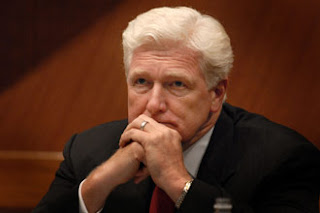
Mr. MORAN of Virginia. Madam Chairwoman, I first want to thank the chairman of the Armed Services Committee and his superb staff for helping redraft portions of this language so that it might be considered. The final language represents a common-sense agreement that I think we should all reach consensus on.
The amendment's purpose is to shed some light on what has become an increasingly invisible world down at Guantanamo Bay.
The first detainees were brought to Guantanamo in 2002 to bypass the U.S. legal system and avoid international conventions and public scrutiny. Since that time the detainment facility has become a blight on American ideals and principles.
We have captured, tortured and interminably held men that we call enemy combatants, some of whom are guilty of crimes against our Nation and should be punished. Others, however, are only guilty of being in the wrong place at the wrong time.
We have created closed military tribunals that offer the false impression of justice, but they fall woefully short of what we should expect from our American system of justice.
Like Abu Ghraib, we've created an unnecessary rallying cry and recruitment tool for al Qaeda and militant Islamists throughout the world. I strongly believe that the continued operation of Guantanamo Bay puts Americans in harm's way and threatens the safety of any of our captured military and civilians abroad.
Defense Secretary Robert Gates and Secretary of State Rice have agreed that Guantanamo Bay represents a serious problem if we are to prevail in the global war on terror. They both advocated shuttering Guantanamo Bay's detention facilities. Even President Bush expressed a desire to see Guantanamo Bay closed.
This amendment offers a first step in giving the President, the Congress and the Department of Defense policy alternatives to Guantanamo Bay. This amendment will require the Department to develop a plan to transfer detainees from Guantanamo Bay.
The report must estimate how many detainees the Department will charge with a crime, how many will be subject to release or transfer, or how many will be held without being charged with a crime, but whom the Department feels that it must detain.
Lastly, the report would include a description of actions required by the Secretary and Congress to ensure that detainees who are scheduled for release are, in fact, released.
This last piece is particularly important, as the Department of Defense has scheduled release of 82 detainees. DOD and the State Department, however, face obstacles releasing these men to their home countries, and in some instances their home nations won't accept their return. In other instances, the State Department won't return detainees to their home nations for appropriate reasons. But we need to know what policy tools Congress can provide to expedite the release of innocent detainees.
All of this information is absolutely necessary for Congress and the administration to make informed decisions about what to do about Guantanamo Bay.
Whether you like it or not, whether you believe that Guantanamo Bay is a blight on our international standing, or whether or not you believe that these detainees should be held and tried in the United States, we should all agree that the policy options before the President and Congress should not be limited by a lack of information.
To opponents of shutting down Guantanamo Bay and my colleagues who believe its closure is a sign of weakness, I suggest that upholding our American principles of justice are not incongruent with our war against terror.
And in a speech before the Republican National Convention in 1992, I would remind my colleagues President Reagan emphasized that our greatest strength as a Nation comes not from our wealth or our power, but from our ideals.
I ask all of my colleagues on both sides of the aisle to support this common-sense amendment, to move forward in our battle against anti-American sentiment, and to provide the President and Congress with real policy options for shutting down Guantanamo Bay.
1 comment:
In 1962 if we had tried that, Castro would have sent his own troops in, stormed the prison, and set the guys free. I'm constantly surprised that the Cubans haven't done it.
Post a Comment